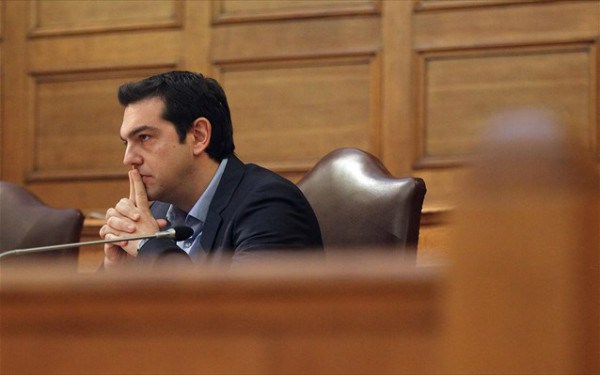By Mark Melin, valuewalk.com
When the Greek government announced its “agreement” with the European “Troika” this summer, in some quarters it was viewed more as a stop-gap measure, delaying the ultimate day of reckoning. That day may be approaching sooner rather than later.
Greek PM Tsipras on thin ice as the most unpopular austerity measures approach
As his shaky coalition is losing members, the Greek Prime Minister Alex Tsipras is becoming more subject to pressure from individual MPs in the legislative branch as well as growing opposition to the even tougher austerity programs that will soon follow. “The government’s dwindling majority makes Tsipras susceptible to pressure from individual MPs holding the PM to ransom,” a report from Teneo Intelligence reads. ”This is especially worrying given that some of the most unpopular reforms still have to be passed, including the tax and pension reforms and the setting-up of the new privatization fund.”
When northern European-influenced negotiators took a hardline stance with Greece, essentially saying it would not bend on the reduction in overall debt owed, eventually the back would break. At the time the IMF, recognizing the increasing tenous probability for a solution to occur without debt reduction, threatened toleave the Troika. The question wasn’t if, but rather when. “Against this backdrop, it is possible that the current coalition government collapses in the middle of the testing period ahead,” Teneo predicted. ”Under the growing pressure, Tsipras has already sought the support of the opposition parties by calling for consensus on key measures such as the pension reform. However, his meeting with opposition leaders not only failed to deliver any sense of cooperation but was also rancorous and highlighted that New Democracy (ND), PASOK and Potami are unwilling to come to the rescue.”
Concern over providing Greek government debt reduction will boomerang at some point
When it was objecting to the heavy handed tactics driven by the ECB and other European bankers concerned about the precedent giving Greece debt reduction would set with other troubled Eurozone nations such as Spain and Portugal. A key point being considered was today’s general strike, which featured youths throwing Molotiv cocktails in protest of austerity measures, as well as more unrest to follow. “The next few weeks will also be tough given the large amount of payments citizens and firms face, including income, property, and car registration taxes, while businesses and entrepreneurs are expected to pay an increased share of their tax liabilities in advance, steadily going towards 100%. Whether the resulting discontent among professionals and other groups like farmers and pharmacists feeds into a revival of large-scale trade union resistance also under a SYRIZA government may become clearer in the context of a general strike called for today, 3 December.”
The silver lining to the situation may be the overall lack of options. There is currently no Greek political party that is embracing the anti-austerity mantle, the report observed. Without a credible political choice, Tsipras and his accommodation to the European banking community is expected to continue in place.
“One way out for Tsipras may be to try to postpone some of the most incendiary measures, such as those on pensions,” the report said. In other words, if the cuts are too painful, the can could be further kicked. However, such delay and avoidance tactics “would mean no debt relief in early 2016. Alternatively, if the quadriga insists on passing these measures and the government loses its majority over their passage, the best case scenario would be a reconfiguration of the coalition government by enlisting support from the Union of Centrists. The worst case would be a new political crisis that could once more make snap polls unavoidable.”









